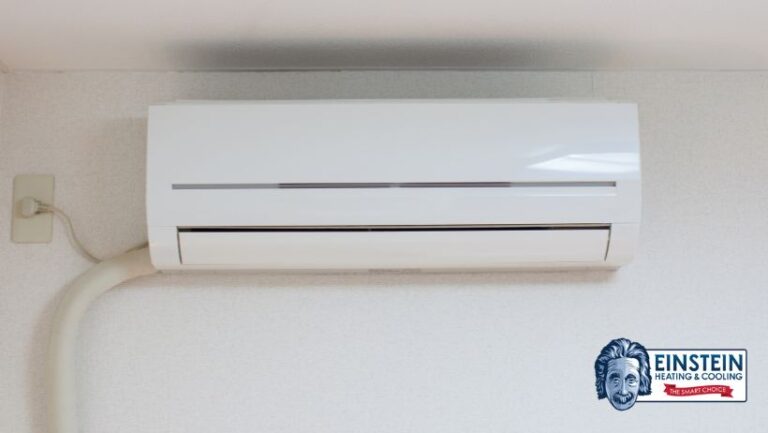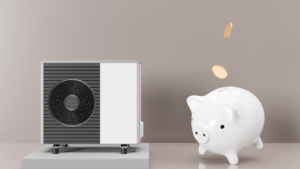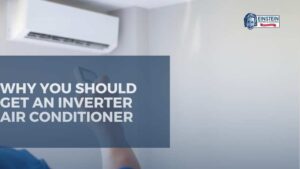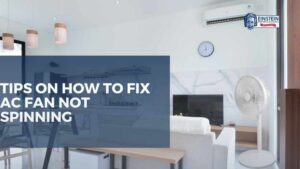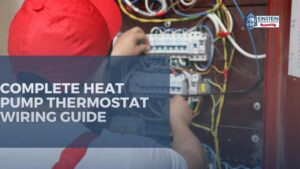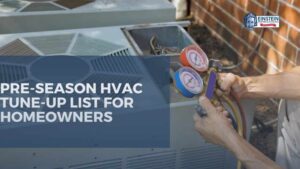The sweltering summer days in Bend, Oregon, can make a well-functioning air conditioning system a lifeline. However, the wear and tear of time, coupled with intensive usage during hot months, can lead to a variety of problems with your AC. In this extensive HVAC repair guide, we will delve deeper into the most prevalent AC issues faced by Bend residents. Moreover, we will provide in-depth solutions to ensure that you remain cool and comfortable throughout the summer. Whether you’re a homeowner seeking to maintain a pleasant atmosphere or a business owner ensuring the comfort of your customers and employees, comprehending these common AC problems will save you time, money, and discomfort.
1. Insufficient Cooling
Common Causes:
Dirty Air Filters:
Dirty air filters are a common culprit behind insufficient cooling in air conditioning systems. These filters are designed to trap dust, pollen, and other particles, but over time, they become clogged with debris. When this happens, airflow is restricted, and your AC struggles to cool your space effectively.
Refrigerant Leaks:
Low refrigerant levels can significantly reduce the cooling capacity of your air conditioner. Refrigerant is the substance responsible for absorbing heat from the indoor air and releasing it outside. When there’s a leak, your AC can’t perform this heat exchange efficiently, leading to insufficient cooling.
Undersized Unit:
An air conditioning system that is too small for the space it needs to cool will inevitably struggle to maintain comfortable temperatures. This problem often occurs when AC units are improperly sized during installation.
Solutions:
Regular Filter Maintenance:
To address the issue of dirty air filters, it’s crucial to maintain a regular filter cleaning or replacement schedule. Generally, air filters should be changed every 1-2 months, or more frequently if you have pets or allergies. This ensures proper airflow and allows your AC to operate efficiently.
Professional Inspection:
Refrigerant leaks are best handled by HVAC professionals. They can identify the location of the leak, repair it, and recharge the refrigerant to the appropriate level. Attempting to fix refrigerant leaks yourself can result in further damage and inefficiency.
Proper Sizing:
To avoid the problem of an undersized AC unit, it’s essential to consult with HVAC experts when selecting and installing a new system. They can perform load calculations to determine the appropriate size of the unit for your specific space, ensuring efficient and effective cooling.
Expanding on the “Insufficient Cooling” factor, it’s important to emphasize that the consequence of inadequate cooling can go beyond discomfort; it can also impact your energy bills. When your AC struggles to cool your home or business, it runs longer and consumes more energy, leading to higher utility costs. Furthermore, it can put unnecessary stress on your AC components, potentially causing more extensive damage over time.
In Bend, where temperatures can soar during the summer months, having a properly functioning AC system is essential for maintaining a comfortable and productive indoor environment. Regular filter maintenance, professional inspections, and proper sizing are key to preventing and addressing insufficient cooling effectively. By investing in the right maintenance and repair strategies, you can keep your space cool and your energy bills in check.
2. Uneven Cooling
Common Causes:
Blocked Vents:
Uneven cooling often occurs when vents are blocked or closed. When some areas of your home or business receive limited airflow, they become warmer than others. This can result from obstructions such as furniture, curtains, or even closed vent registers.
Inadequate Insulation:
The quality of insulation in your building plays a significant role in maintaining even temperatures. Poor insulation can lead to temperature disparities, with some areas feeling much hotter or colder than others.
Damaged Ductwork:
Leaky or damaged ducts can disrupt the airflow from your AC system. When cooled air escapes through holes or gaps in the ducts, it doesn’t reach its intended destination, causing uneven cooling.
Solutions:
Vent Inspection:
To ensure even cooling, it’s essential to inspect your vents regularly. Make sure they are open and unobstructed. If furniture or other objects are blocking vents, rearrange them to allow for proper airflow. Additionally, consider using vent deflectors to direct airflow more effectively.
Home Insulation:
Investing in proper insulation is vital for maintaining even temperatures. Adequate insulation not only prevents heat from entering during hot summer days but also retains warmth during the winter. Addressing insulation issues can significantly improve the comfort of your indoor spaces.
Duct Repairs:
If you suspect that damaged or leaky ducts are causing uneven cooling, it’s crucial to have them inspected and repaired by a professional technician. They can seal any gaps or holes in the ductwork, ensuring that cooled air reaches all areas of your space.
Expanding on the “Uneven Cooling” factor, it’s worth highlighting the importance of balanced airflow for overall comfort and energy efficiency. Uneven cooling not only creates discomfort but also places additional strain on your AC system. When some areas are too warm, you might be tempted to lower the thermostat, causing your AC to work harder, which can lead to higher energy bills and potential system wear and tear.
Additionally, in commercial settings, uneven cooling can affect employee productivity and customer satisfaction. Customers and employees in hot or cold spots may be less comfortable, leading to reduced sales or decreased productivity.
To address this issue effectively, it’s essential to take a comprehensive approach. This includes ensuring proper vent placement and airflow, improving insulation, and addressing any ductwork issues. By maintaining even cooling, you can create a more comfortable and energy-efficient indoor environment, whether at home or in your business.
3. AC Not Turning On
Common Causes:
Thermostat Issues:
A malfunctioning thermostat is a common reason for an AC not turning on. The thermostat is responsible for signaling the AC to start cooling when the temperature rises above the set point. If it’s not functioning correctly, it may not send the signal.
Tripped Circuit Breaker:
A tripped circuit breaker can disrupt the power supply to your AC unit, preventing it from turning on. This can happen due to electrical issues or overload.
Faulty Wiring:
Damaged or faulty wiring in your AC system can disrupt the electrical connection and prevent the unit from turning on. Wiring issues can occur due to wear and tear or improper installation.
Solutions:
Thermostat Check:
When your AC doesn’t turn on, the first step is to verify that your thermostat is functioning correctly. Check if it displays the correct temperature and is set to the desired cooling mode. If you have a programmable thermostat, ensure that the schedule is programmed correctly. Replace the thermostat batteries if applicable.
Circuit Breaker Inspection:
If you find that the circuit breaker for your AC has tripped, reset it. However, if it trips again, it’s crucial to have a professional electrician inspect your electrical panel and AC unit for any underlying issues.
Wiring Inspection:
Wiring problems should be addressed by a qualified HVAC technician or electrician. They can inspect the wiring, identify any damaged or faulty components, and perform necessary repairs to restore the electrical connection.
Expanding on the “AC Not Turning On” factor, it’s essential to understand that an AC unit that won’t start can leave you in discomfort, especially during the scorching summer days in Bend. Moreover, if not addressed promptly, this issue can lead to further complications and potential damage to your AC system.
Additionally, when your AC doesn’t turn on, it can be a source of frustration and inconvenience. In homes, it can disrupt daily routines and make your living space uncomfortable. In commercial settings, it can affect customer comfort and employee productivity, potentially leading to financial losses.
To ensure that your AC turns on reliably when needed, it’s vital to perform regular thermostat checks and address any issues promptly. If you encounter persistent problems with your AC not turning on, seeking professional assistance is the best course of action to prevent further complications.
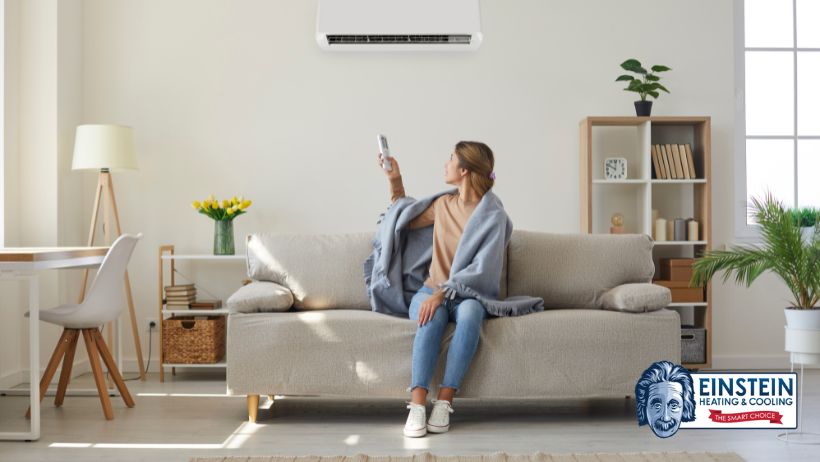
4. Strange Noises
Common Causes:
Loud Compressor:
A noisy compressor can indicate mechanical problems within your AC system. The compressor is responsible for pressurizing the refrigerant and facilitating the heat exchange process. If it’s making loud noises, it may be struggling or malfunctioning.
Loose Parts:
Loose or worn-out components within your AC unit can create rattling, squealing, or clanking sounds during operation. These noises often result from vibrating or shifting parts.
Clogged Condenser:
Debris buildup in the condenser unit, located outside your home or building, can lead to unusual noises. As the fan in the condenser unit tries to move air through obstructed fins, it can create noise.
Solutions:
Compressor Inspection:
When your AC’s compressor is making loud noises, it’s advisable to contact an HVAC technician for a thorough evaluation. The compressor is a crucial component of your AC system, and any issues with it should be addressed promptly to prevent further damage.
Tighten or Replace Parts:
If you notice rattling or clanking noises, it’s essential to secure any loose parts and replace worn-out components as needed. Ignoring these noises can lead to more extensive and costly repairs down the road.
Condenser Cleaning:
Regularly cleaning the condenser unit can prevent noise caused by debris buildup. Ensure that the area around the condenser is clear of vegetation and debris that can obstruct airflow. This will not only reduce noise but also improve the efficiency of your AC system.
Expanding on the “Strange Noises” factor, it’s crucial to recognize that unusual sounds from your AC system should not be ignored. These sounds are often indicators of underlying issues that, if left unaddressed, can lead to more significant problems and potentially costly repairs.
Moreover, strange AC noises can be disruptive and affect your overall comfort. In homes, they can lead to sleep disturbances and general annoyance. In commercial settings, they can disturb customers and employees, impacting the overall experience and productivity.
Regular maintenance, including cleaning the condenser unit and securing loose parts, can help prevent strange noises from occurring in the first place. However, if you do encounter unusual sounds from your AC system, it’s best to have them investigated and resolved by a qualified HVAC technician to ensure the long-term health and efficiency of your AC system.
5. AC Leaking Water
Common Causes:
Clogged Drain Line:
A blocked condensate drain line is a frequent cause of water leakage from your AC unit. The condensate drain is responsible for removing the moisture that collects as a result of the cooling process. When it becomes clogged, water can overflow.
Frozen Evaporator Coil:
A frozen evaporator coil can lead to excess water when it thaws. This can happen due to restricted airflow, low refrigerant levels, or other issues that cause the coil to become too cold.
Refrigerant Issues:
Low refrigerant levels can result in frozen coils and subsequent water leakage. Refrigerant is essential for the heat exchange process, and when levels are insufficient, the coil can freeze.
Solutions:
Drain Line Cleaning:
To prevent water leakage due to a clogged condensate drain line, it’s essential to clear the line regularly. This will ensure that moisture is properly removed from your AC unit.
Proper Insulation:
Proper insulation in your home or building can help prevent the freezing of the evaporator coil. Adequate insulation helps maintain stable temperatures within the air handler, reducing the risk of frozen coils.
Refrigerant Leak Repair:
If your AC unit is experiencing refrigerant issues that lead to frozen coils and water leakage, it’s important to address these issues promptly. Engage the services of a professional HVAC technician to identify and repair refrigerant leaks, ensuring the efficient operation of your AC system.
Expanding on the “AC Leaking Water” factor, it’s crucial to understand that water leakage from your AC unit can lead to various problems beyond just discomfort. If not addressed, it can result in water damage to your property, including walls, ceilings, and flooring. Additionally, water leakage can promote mold and mildew growth, posing health risks to occupants.
Moreover, water leakage from your AC can be an indicator of underlying issues, such as clogged drain lines or refrigerant problems. These issues can impact the efficiency and performance of your AC system, potentially leading to higher energy bills and costly repairs.
To prevent water leakage and its associated problems, it’s essential to perform regular maintenance, including cleaning the condensate drain line and addressing any refrigerant issues promptly. By taking these steps, you can ensure the proper function of your AC system and maintain a comfortable and healthy indoor environment.
Conclusion
Maintaining a well-functioning air conditioning system is paramount in Bend, Oregon, where the summer heat can be relentless. By gaining a comprehensive understanding of these common AC problems and their corresponding solutions, you can ensure that your HVAC system keeps you comfortable year-round. Regular maintenance and timely HVAC repair services are essential for extending the lifespan of your AC unit and maintaining its efficiency.
In Bend, where summer temperatures can soar, a reliable AC system is not just a luxury but a necessity. Whether you’re at home or managing a business, addressing these common AC issues promptly can help you avoid discomfort, higher energy bills, and potential damage to your property.
Opt for Einstein Heating and Cooling for your AC repair needs
If you encounter complex or persistent AC issues, don’t hesitate to seek assistance from the experienced professionals at Einstein Heating and Cooling. Our team of HVAC technicians is well-prepared to provide reliable HVAC repair and maintenance services to residents and businesses in Bend, Oregon.
When it comes to addressing your air conditioning repair needs in Bend, Oregon, Einstein Heating and Cooling stands out as the premier choice. We understand the critical role a properly functioning AC system plays in combating the scorching summer heat of Bend. Our team of experienced technicians possesses the knowledge and skills needed to diagnose and resolve a wide range of AC issues with precision and efficiency. Whether you’re facing insufficient cooling, uneven temperature distribution, a malfunctioning thermostat, strange noises, or any other AC problem, you can count on our experts to deliver tailored solutions. At Einstein Heating and Cooling, our commitment to top-notch service and customer satisfaction makes us the preferred partner for all your AC repair requirements.
Keep your cool and enjoy the comfort of a well-functioning air conditioner. Your comfort and satisfaction are our top priorities!

